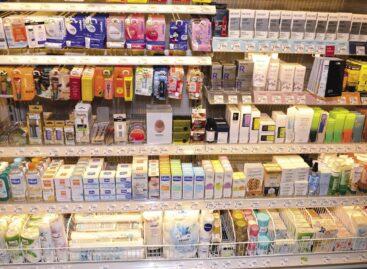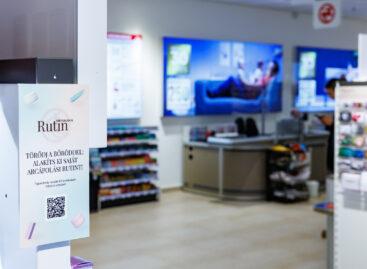Magazine: Facing cleansers
For facial care products the biggest challenge in the Hungarian market is the low penetration level of the category. NIVEA’s 2015 ‘Good value for money’ survey found that only 31 percent of Hungarian women use facial cleansing products. Meanwhile manufacturers keep developing new facial care products that serve special needs. 2in1 and 3in1 products that clean, moisturise and remove makeup are very popular. The survey also found that women not only think that the face cleansing process is simply too long, but they also say that the skin on their face feels dry and irritated afterwards. Based on this consumer feedback NIVEA developed their latest product line, Creme Care facial cleansers. They not only make the face clean but also nourish it. Creme Care is available in three versions and they have to be used on wet skin – informed Viktória Tantics, brand manager of Beiersdorf Kft.
Mariann Varga, product manager of Alveola Kft. told our magazine that in the first quarter the sales performances of various brands were about the same each month. The company launched the JimJams Beauty facial care range a few years ago and volume sales of these products have been growing ever since. Products such as the JimJams Vibrasonic or JimJams Ultrasonic facial cleanser and care devices won Product of the Year in 2016. The JimJams Beauty product line was compiled to offer the synergy of 3 simple steps (cleaning, activation, care), multiplying the efficiency of products used on the skin of the face.
More and more consumers are becoming ‘skin-conscious’ and this entails growing demand for more natural, paraben-free facial care products. The driving force behind manufacturers’ innovation activity is research results in biology and genetics, with the main directions being the utilisation of plants’ stem cells, epidermal growth factors (EGF) and epigenetics. Olivér Szücs, marketing director of Helia-D Kft. spoke about how they plan, develop and launch their new products with these trends in mind, but at the same time also taking into consideration the increasing demand for using special local ingredients in facial care products.
Target Sales Group Kft. put a brand new product on the Hungarian market least year: Lirene facial care products. Junior product manager Zsuzsa Tabár told our magazine that Lirene Hydrate and Nourish products generate the highest sales in the product range – these are available in Auchan and Rossmann stores. As a growing proportion of shoppers are looking for anti-wrinkle products, the company’s Liren facial creams, which contain hyaluronic acid, are more and more popular; they are available in three versions. Ms Tabár added that from natural ingredients most consumers prefer aloe vera and from their Hydrate and Nourish products one of the most popular ones it the anti-aging facial cream that contains aloe vera. Lirene Pearl Rejuvenation facial creams will soon turn up on the shelves of Rossmann stores.
Superio Kft. is the distributor of Polish brand Ziaja in Hungary. Tímea Kossár told Trade magazin that they are dedicated to using natural ingredients and this pays off as shoppers are more knowledgeable about products these days, thanks to the internet. At ziajashop.hu visitors currently find almost 200 different products but only a small proportion of these are available in shops. The company would like to make more of them available in brick and mortar stores, e.g. products with Manuka tree extract which are good for teenagers with acne or the products with saffron extract that are favoured by consumers older than 60 years. Drugstores are the most important channel in selling Ziaja products, but they can be found in more and more pharmacies and specialist shops.
An online survey conducted by Dr. Organic with 3,053 participants about natural cosmetics has found that Hungarian consumers are increasingly conscious. The majority of respondents know the difference between classic and natural cosmetics, and they are also familiar with unhealthy product ingredients such as parabens. One third of shoppers would be willing to pay HUF 500-1,000 more for healthier natural cosmetics. 83 percent of respondents purchase cosmetics in drugstores, while only 14 percent do it in hypermarkets and 7 percent buy them in discount supermarkets. 84 percent of them have already used products containing aloe vera.
Related news
Taking facial care to the next level
This article is available for reading in Trade magazin 2024/10…
Read more >Hair care has been added to the Rossmann Rutin
At the beginning of 2024, the Rossmann Rutin debuted, with…
Read more >Beiersdorf To Develop Anti-Ageing Solution With Rubedo Life Sciences
Skincare giant Beiersdorf has entered into a multi-year partnership with…
Read more >Related news
Recognition of Consumer Protection Excellence: Honoring the Best of 2024
This year’s outstanding consumer protection officers and special award recipients…
Read more >KSH: industrial production decreased by 0.2 percent in October
In October, the volume of industrial production fell by 0.2…
Read more >Technological advancements and business travel
The latest research from International Workplace Group (IWG), the leading…
Read more >








